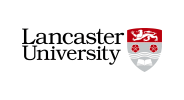© Pint of Science, 2025. All rights reserved.
Tonight, we’ll be bringing together topics across the spectrum of natural sciences to demonstrate the variety that these ‘hard sciences’ have to offer. From seeing the order in seemingly chaotic living systems, discovering the deepest mysteries of the universe and exploring chemical polymers, there is something for everyone.
From fireflies to cancer: learning from nature's cycles
Joe Rowland Adams
(PhD Student: Nonlinear and Biomedical Physics)
Juliane Bjerkan
(PhD Student, Nonlinear and Biomedical Physics, Lancaster University)
Did you know fireflies coordinate their flashes to attract mates? And that understanding this phenomenon can help when studying cancer, covid and dementia? From the night-day cycle to the heartbeat, nature is full of cycles. In this presentation Joe and Juliane will look at what an emerging field of physics can bring to the table when studying living systems.
Searching for dark matter using quantum technology
Professor Edward Laird
(Professor of Experimental Physics, Lancaster University)
Dark matter makes up eighty percent of every galaxy’s mass. Its gravity reveals it, but its composition remains a mystery. Axions are a promising candidate. These hypothetical particles formed shortly after the Big Bang, congregated in galaxies, and now pass with barely a trace through ordinary matter. To find out if axions exist, the tiny signals they create interacting with our detectors need amplifying. This talk explains how quantum mechanics sets an ultimate limit on the sensitivity that any amplifier can achieve - and how quantum technology also gives us a way to evade that limit.
Of failure and serendipity: exploring the limits of chemical space
Dr Luis Pinho
(Senior Research Associate, Lancaster University)
Chemical reactions are all about breaking bonds and making new ones with some energy involved in the process. When we pick a number of substances and make them react in a range of conditions, the result will be an immense set of data that fully represents all their possible combinations. Using artificial intelligence and robots, we can now make better predictions and gain a more thorough understanding of our fiascos and eureka moments. Get on board a chemical journey between the development of world-changing valuable products and some of the most terrible poisons that mankind has ever seen…
Map data © OpenStreetMap contributors.
